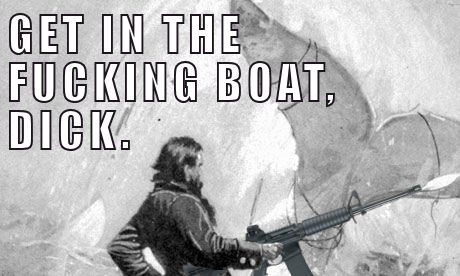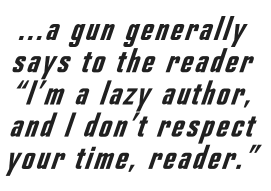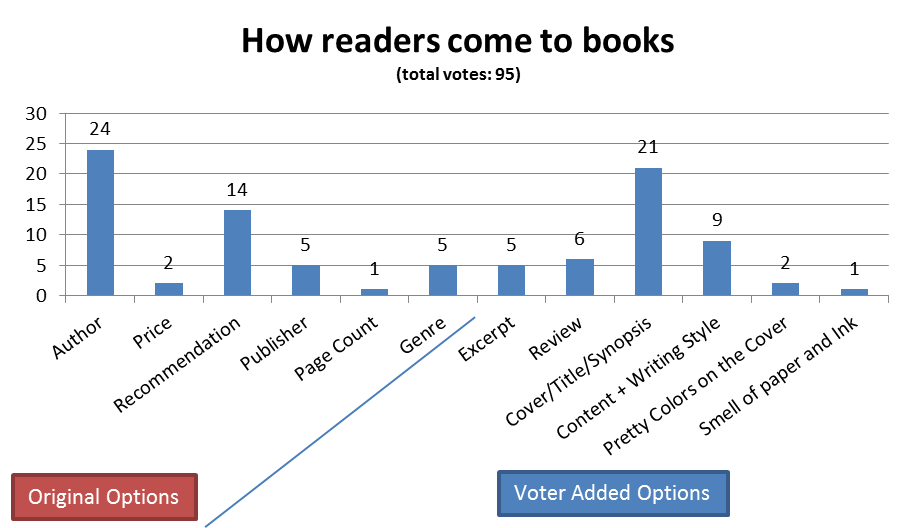Why don’t I use guns in fiction?


(This post isn’t so much a cohesive argument but more of a textualized exploration. I welcome contributions to the topic)
I rarely incorporate guns into my fiction. To me, the (sudden) presence of a gun shifts the trajectory of a story much too easily. No matter how a character has been established during the preceding pages, a gun suddenly—and more importantly, unfairly—gives ultimate power to that character. When given a gun, either 1) a lackluster character becomes the fulcrum of a scene (or story) or 2) a well-developed character gets robbed of all the reader investment by artificially becoming the fulcrum of a scene (or story)[1]Of course there are exceptions. If the gun itself is important to the character’s makeup, or if the context of a story supports guns (a war story, for example), or, as in the case of one of my … Continue reading. Either way, a gun generally says to the reader “I’m a lazy author, and I don’t respect your time, reader.”
 But I do incorporate what I would consider valid character traits/histories. Some of the more common traits I use being difficult childhoods, physical deformities, and general familial strife.
But I do incorporate what I would consider valid character traits/histories. Some of the more common traits I use being difficult childhoods, physical deformities, and general familial strife.
However, this morning, I asked myself what’s the difference between a physical deformity and a gun? Aren’t they both, in some way, just crutches used to advance plot. Some perhaps more nuanced than a gun, but still, aren’t they all simply elements designed to steer the plot’s trajectory?
Is there a universal hierarchy of character traits, ranging perhaps from the most subtle (re: most acceptable and vetted) to the most obnoxious (re: the most potential to artificially steer a plot; re: gun)? Of course the answer is no; nothing is universal and there are plenty of examples of guns in quality fiction. But the question is worth exploring.
Perhaps a better way to approach this topic is by asking, is it possible for a story to work without containing any narrative crutches at all? When asked this way, the same response, no, means so much more.
Now that we can accept that a story MUST contain character traits (crutches), especially when we acknowledge that the very purpose of a character trait is to advance (re: steer) plot. The original concern then returns: are guns simply an especially lazy character trait. Yes. Yes they are.
[references/]
Footnotes
| ↑1 | Of course there are exceptions. If the gun itself is important to the character’s makeup, or if the context of a story supports guns (a war story, for example), or, as in the case of one of my novels, the very power of something like a gun to quickly change a story’s trajectory is exactly one of the points of the novel. |
|---|



I don’t think of guns as being character traits, but plot devices. Now, if the person carries a gun at all times, yes, that can make it difficult to escalate tension, and might be a crutch. But some other character pulling a gun on your protag can be a wildcard plot element that shifts the balance of power just like any other surprising thing that happens. What would be more interesting to write about is detailing them acquiring the weapon, not knowing how to use it, the awkwardness, or them having to practice with it first. What I loathe are professional gun-toters who use it close-up, only to have it predictably taken away from them. The whole point of having a gun is to be able to inflict damage from a distance. I also hate how often victims of gunshots (see also: knives, etc.) die instantly out of convenience, rather than slowly bleeding out and still being relevant to a scene. Unless it’s a headshot, of course.
I categorize a gun as a character trait because it requires a character’s conscious decision to use it, as opposed to a more obvious plot contrivance such as a fire or car wreck. Perhaps, more aptly, the “trait” is the character’s disposition to actually pulling the trigger.
huh, in the novel I just wrote I’m pretty sure almost every seen involves a gun. the main character robs a bank with a gun. then, when he is convinced that his former partner is out to kill him, he carries a gun all the time due to a realistic fear, when he first gets with his wife one of the reasons she is so attracted to him is because she finds his Colt .45 automatic in his bedside drawer and it excites her, and then there are lots of robberies and stuff with people using guns.
I don’t think I could’ve written the book without guns.
but maybe what you are talking about is more like what Michael from the office always did in his improvs — pull a gun when he ran out of things to say
I find it difficult even to want to read a book with guns in it. I agree with you on this, though I guess I’d put the point rather more forcefully: the gun has become the cheapest tool at the plot-driven narrative writer’s disposal, and we ought to shame those who overuse the gun in their fiction. Or shoot them.
You might argue they’re necessary because the character’s life has to be on the line. Well, you don’t need guns to kill someone. We all know a bullet in someone’s head will be that someone’s end. So what?
Or you could argue that in some environments, there are just loads of guns. Maybe you’re writing a war novel. To that I’d reply with a quote from Borges, which, whether it’s totally true or not, captures the point I’m making:
“Gibbon observes that in the Arab book par excellence, in the Koran, there are no camels; I believe if there were any doubt as to the authenticity of the Koran, this lack of camels would suffice to prove that it is Arab. It was written by Mohammed, and Mohammed, as an Arab, had no reason to know that camels were particularly Arab; they were, for him, a part of reality, and he had no reason to single them out, while the first thing a forger, a tourist, or an Arab nationalist would do is bring on the camels, whole caravans of camels on every page; but Mohammed, as an Arab, was unconcerned; he knew he could be Arab without camels.”
If you have to fetishize the gun, you want to write about; any excuse will do.